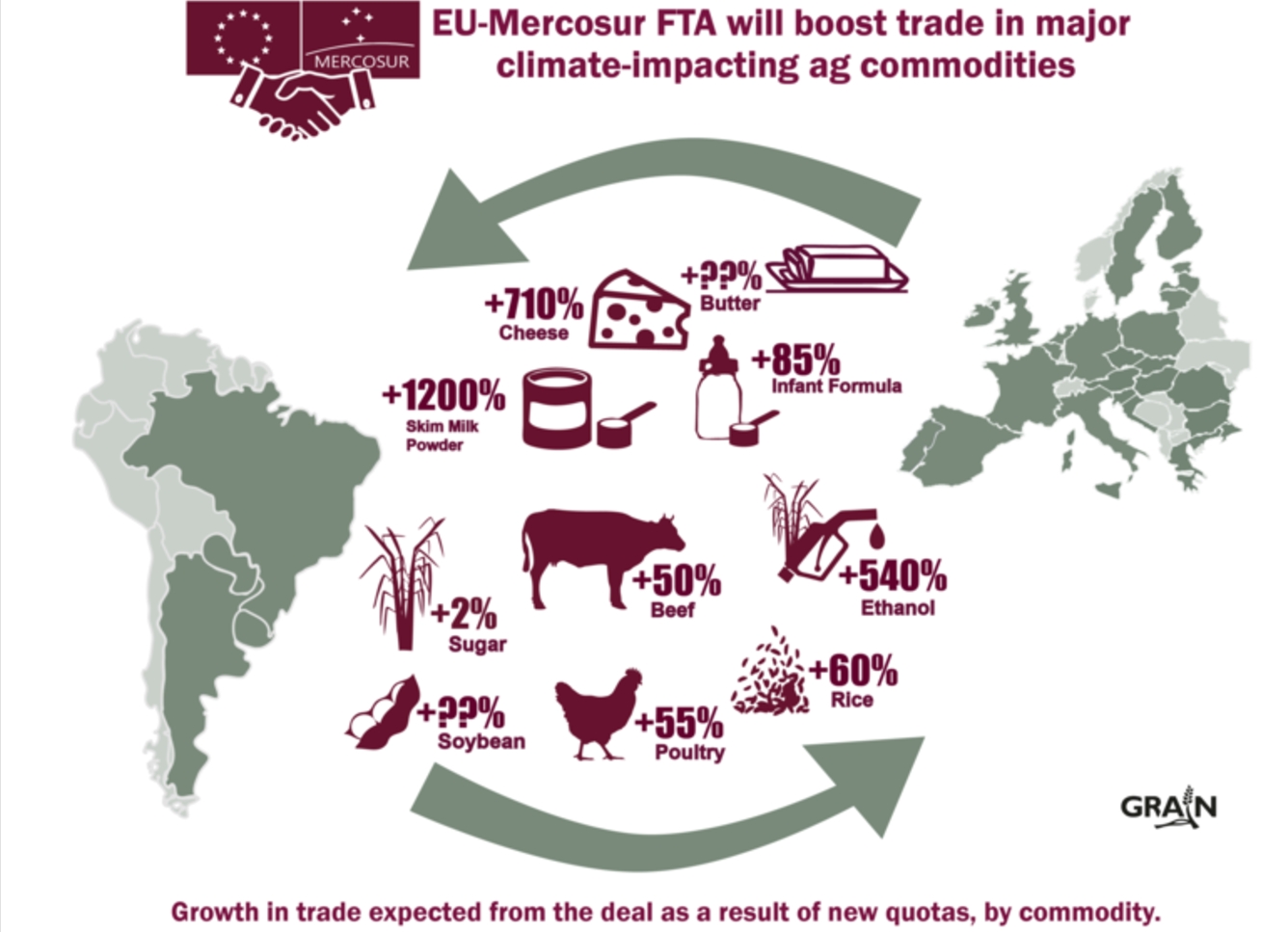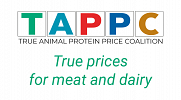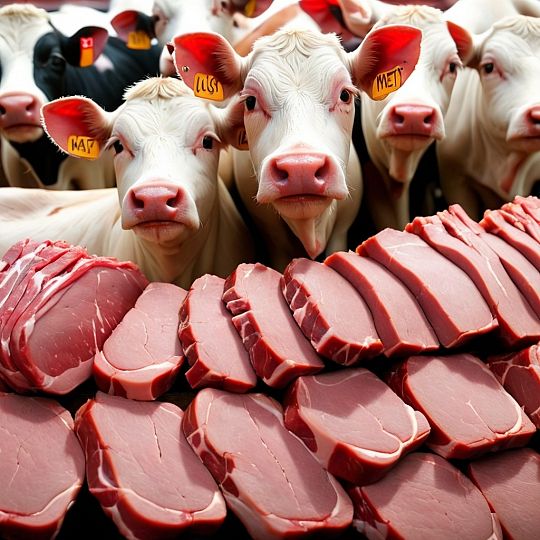EU-Mercosur bad for climate and farmers - letter to EU Ministers to block
Today, TAPP Coalition sent this urgent letter to EU presidents, Ministers of Agriculture and Environment and members of EU Parliament (Agri & Envi committees):
Your Honourable Presidents and Ministers of Agriculture and Environment, Member of EU Parliament
Today, the EU Commission signed a controversial trade deal with 5 Mercosur countries. More info: https://ec.europa.eu/commission/presscorner/detail/en/ip_24_6244
TAPP Coalition, a European alliance of food companies, farmers and NGOs representing 7000 European companies and 1,6 million citizens urges EU Member States and EU Parliament to block this deal.
Farmers' organisation COPA is furious, as farmers had street protest among other things, because of this kind of unfair trade deals, which means farmers face cheap imports from South America, with much lower environmental and animal welfare standards and thus unfair competition. The EU Commission claims the deal will not cause deforestation because of EU rules for ‘deforestation-free’ products, but the newspapers are full of how farmers and traders circumvent these rules and deforestation continues, legally and illegally. France, Poland and Austria will not sign the EU-Mercosur deal, and the Dutch parliament recently called again to block the deal. The EU Parliament is also critical.
So it remains to be seen whether the EU-Mercosur deal will actually happen.
The new EU-Mercosur deal says: "The agreement will offer EU industries cheaper high-quality raw materials by reducing or eliminating duties that Mercosur currently imposes on exports to the EU of products such as soybean products (feed for EU livestock)". So it will reduce prices for soy, and this will reduce prices for meat and dairy in the EU, leading to higher consumption, contrary to the Paris Climate Agreement goals and the Farm to Fork Strategy. This EU policy asked for a reduction in EU meat consumption because of public health and climate reasons. Environmental taxes on meat are needed or agri-food ETS for slaughterhouses and dairy factories, not reduced prices for meat and dairy as a result of EU-Mercosur deals.
Previous environmental impact analyses showed the EU-Mercosur deal to be a bad deal for the climate: more meat and soy production in S-America (for the EU market) and more dairy production in Europe for Mercosur, compared to no deal. The previous impact analyses showed the EU-Mercosur trade deal will raise greenhouse gas emissions from trade in just eight farm products by one-third. Research from GRAIN, released 2,5 years ago, shows that the trade pact will boost climate emissions for eight farm products by 8.7 million tonnes per year, one-third more than was produced in 2019. More than 80% of these emissions will come from one product: Mercosur beef. On Europe’s side, emissions from the export of dairy products will rise by 500%.

The current deal is slightly better than before, but still net bad for the climate, because dairy production in Europe will increase (for the Mercosur) and more (cheap) meat from South America will also come to the EU with lower import tariffs (90,000 tonnes of beef, 1.6% of beef production in Europe and 180,000 tonnes of poultry meat from Mercosur, 1.4% of poultry consumption in the EU I just read). In short: there is a brake on EU meat imports, but more (cheap) meat and soy will still come to the EU thanks to the deal.
Strangely, the environmental impact study has not even been published; the EU Commission today says: ‘the Trade Sustainability Assessment (SIA) is under way’.
TAPP Coalition pleaded in the past to introduce CBAM import tariffs on all imports to the EU of meat, dairy and feed produced with lower environmental standards than in the EU itself. A yardstick for this could be an FAO database of greenhouse gas emissions per kg of product. It appears that S-American products score very poorly compared to the EU. Regardless of an Agri-ETS or EU-Mercosur deal the EU Commission should consider CBAM import taxes on meat and dairy and soy to help reduce global emissions from the agriculture sector and protect EU farmers against unfair trade.
With kind regards,
Jeroom Remmers
Director TAPP Coalition
https://tappcoalition.eu
0031 6 22 40 77 12
Additional information (15 February 2025):
An UK analysis of the EU Mercosur deal wrote on increased soy exports to the EU: "As stated previously, there are currently no tariffs or quotas on soybean imports from Mercosur to the EU. However, countries within Mercosur impose export taxes on soy, with rates varying between countries: Argentina levies the highest tax at 33%, while Paraguay applies the lowest at 10%. The incoming trade deal could see these export taxes removed for soy destined for the EU. In 2024/25 marketing year soybean imports into the EU are coming from the US 48 %, Brazil 35.5 %, Ukraine 10.8 % and Canada 5 %. The EU has also seen increased demand for imported soybean, in the 2024/25 season that started in July imports had reached 6.96 million metric tons by 5 January, compared with 6.22 million tons a year earlier. The deal may come at the perfect time for Brazil and the Mercosur countries who look to take advantage of this expanding market.
With access to cheaper soybean, a key high-protein ingredient used in animal feeds across sectors such as poultry, beef, sheep, and pork, EU producers may substitute soy for local grains that would typically be consumed. This substitution could displace EU-produced grains, including feed wheat and maize. As EU producers look for alternative markets to sell their excess feed wheat and maize, this could place downward pressure on feed wheat and maize prices. On the flip side, producers in the red meat, poultry, and pork industries may benefit from the reduced cost of feed, as the increased supply of cheaper soy results in lower feed prices."
This means, if Argentina for instance will drop the 33% export tax on soy to the EU, Argentian soy will become 25% cheaper for the EU. And this can make the price of chicken meat produced in the EU approximately 10-15% cheapers too. And higher exports of soy from the Mercosur may also drive more legal and illegal deforestation.
Rabobank published an analysis of the EU Mercosur deal in January 2025. Here they confirmed the deal can have a net negative impact on European farmers, especially those who produce beef and chicken because of more imports of meat from Mercosur.
A previous climate impact assessment of the EU Mercosur deal (GRAIN) showed an increase of global GHG emissions of 8.7 million tonnes per year, as a result of the EU Mercosur deal; 80% of it from increased trade of beef to the EU (+50%). In the Rabobank paper it states that beef trade from Mercosur to the EU will increase by +209%, so a factor four more (new access as percentage of currrent trade flow to the EU). This could mean the climate impact of the new EU Mercosur deal compared to the draft deal a few years ago will increase global GHG emissions with a factor 4 (approximately 35 million ton GHG emissions).


